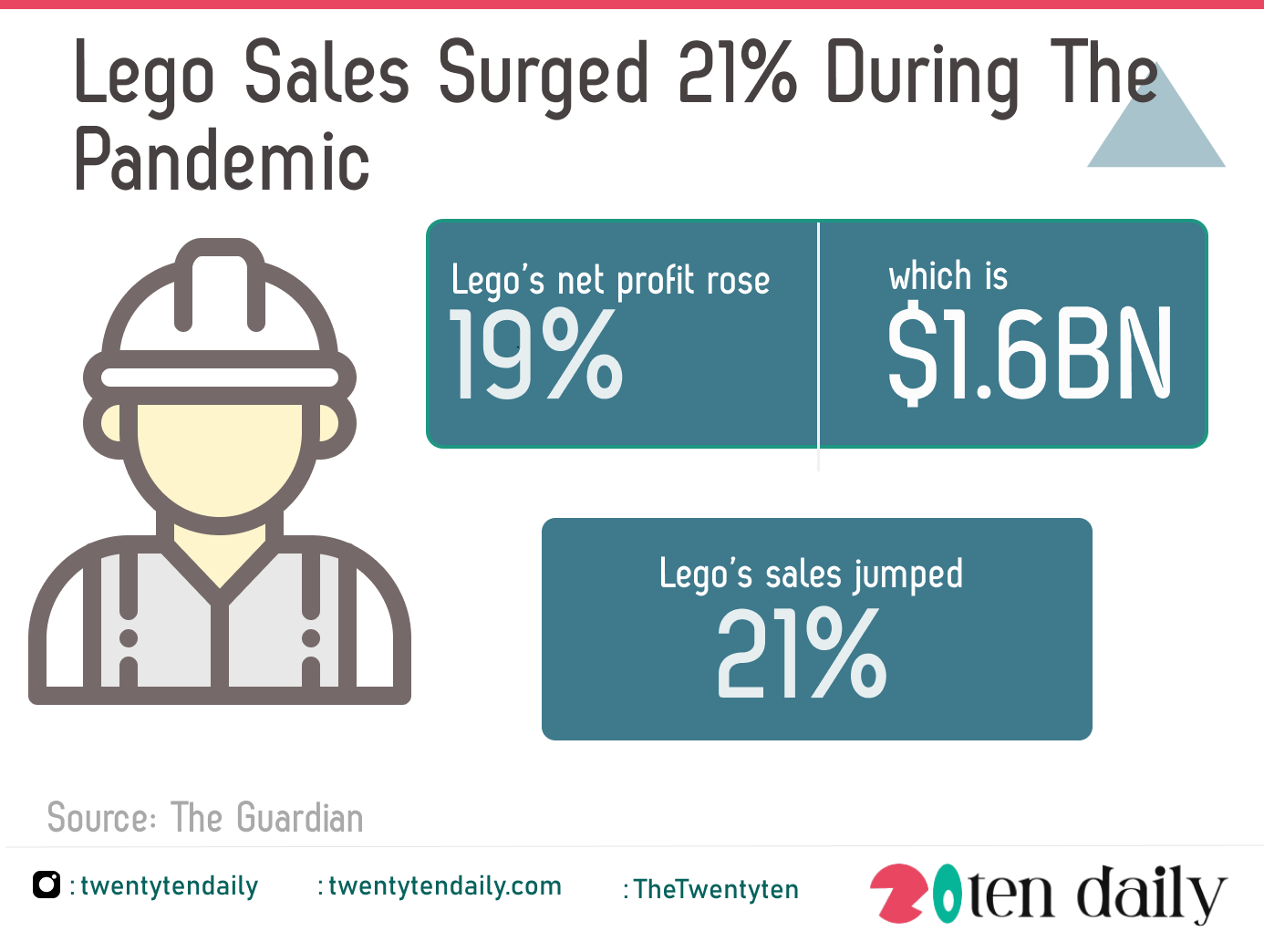Lego Sales Surged 21% During The Pandemic
New reports reveal that the sale of Lego sets surged last year as more children stayed home during global pandemic lockdowns. The privately-held Danish company said its net profit rose 19 percent to 9.9 billion kroner ($1.6bn) as sales jumped 21 percent.
Its presence grew in its 12 largest markets during the pandemic as families spending more time together sparked a strong demand for their products. However, Lego did not attribute its growth entirely to the global lockdown. According to the company’s CEO, investment in store openings and online were paying off.
Niels B Christiansen, Lego’s chief executive, said the company had made big investments over the previous two years. Chief Executive Niels B Christiansen told The Associated Press that the “super strong results” were thanks to strategic investments made years ago to move more sales online.
“This is not COVID-related. This was an evolution that started a while ago,” he said. “In 2020, we began to see the benefits of these, especially in e-commerce and product innovation.”
He declined to say how much of the company sales were online but noted that there had been 250 million clicks on the group’s web page.

Consumer sales grew by double digits in all regions, with especially strong growth in China, the Americas, Western Europe and the Asia Pacific region. The push to online sales helped offset disruptions to business from the pandemic restrictions.
“We had factories that had been forcefully shut down and shops closed … some have reopened, others are still closed,” Christiansen said. The enforced closures of manufacturing sites were chiefly in Mexico and China.
“We had several times to hold back toys because movie releases were postponed. It was frustrating for us,” Christiansen said.
Lego, which is based in Billund, western Denmark, said it wanted to further speed up investment in digitalisation.
“The past year has shown the importance of having an agile, responsive business built on strong digital foundations,” Christiansen said. “I expect that 2021 will see sales increase.”
Despite the company’s focus on digitalisation, including e-commerce, Lego is still backing physical retail with a large-scale store opening programme. The company opened 130 new shops in 2020, 91 of which were in China, and plans further openings this year, which will take its global store count from 678 to 800.
Lego was founded in 1932 by Ole Kirk Kristiansen and the name derived from the two Danish words LEg GOdt, which mean “Play Well”. The brand name Lego was created which coincidentally means “I assemble” in Latin.



